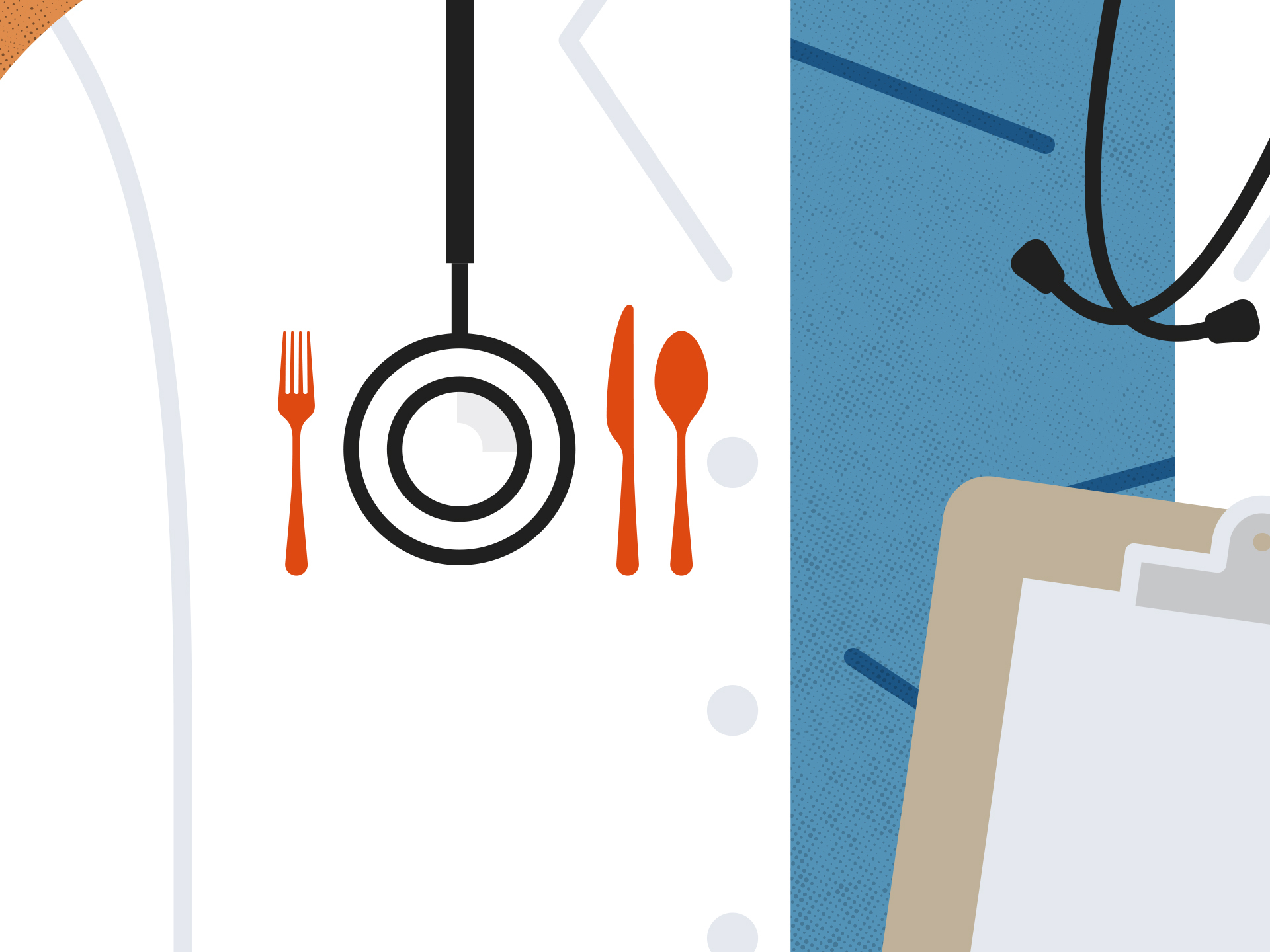As the holiday season approaches, many of us plan to celebrate with bountiful meals. We’re grateful for the local food banks and community kitchens that help nourish our less fortunate neighbors — perhaps we even donate food to those kitchens or lend a hand in helping to serve the meals.
It’s vital work because — not just during the holidays but throughout the year — nearly 8 million Californians don’t have enough to eat.
This year, some families on the central coast will receive grocery gift cards as part of their medical exam at a free mobile health clinic. In San Diego County, homebound seniors will have a special holiday meal delivered to them. And in Los Angeles, people in urban “food deserts” will have access to nutritious food closer to where they live.
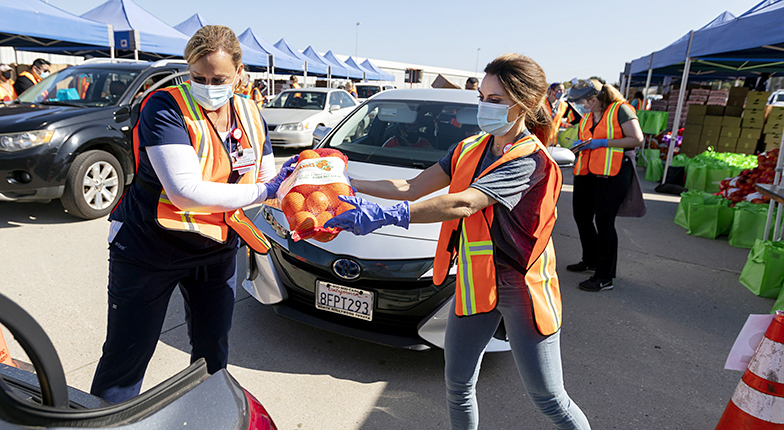
The common thread in all these programs: They’re being provided through local hospitals.
Hospitals are dedicated to improving health outcomes. That means that, across the state, they’re reaching beyond their own walls and into their communities to address many of the factors that affect health. To tackle one of those factors — access to healthy foods — they’ve found some innovative ways to help feed their communities.
More Than a Clinic
In Monterey County, Salinas Valley Memorial Healthcare System launched a mobile health clinic that visits underserved neighborhoods.
“We’ve learned in the past two years that providing good medical care is more than monitoring health conditions and administering medicine, but seeing the whole individual and addressing all of their needs,” said Dr. Orlando Rodriguez, the mobile clinic’s medical director.
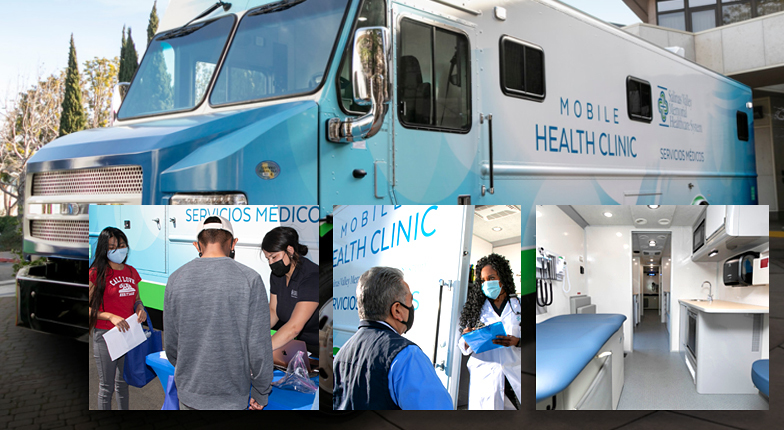
The clinic van provides free preventive and primary care to those who don’t have health insurance or can’t otherwise get to a doctor’s office. Every interaction includes an assessment of each person’s social needs (housing, nutrition, and more) so they can be connected to other services — including receiving bags of healthy groceries and gift cards to local markets.
Since September of last year, the clinic has distributed $10,000 in grocery store gift cards and nonperishable food, and seen more than 4,000 patients.
“Being involved in the mobile clinic has really opened my eyes to the need that’s out there,” said Lynette Fitzgerald, program manager for the mobile clinic. “I am so proud and so honored that our hospital has taken such a huge stand to support those in need without asking any questions, and not just with their health care needs.”
Meeting People Where They Are
At the far end of the state on Coronado Island in San Diego, homebound seniors, people with disabilities, and others who have no way to get groceries can count on volunteers from Sharp Coronado Hospital to make daily deliveries from Meals on Wheels. The hospital’s volunteer auxiliary coordinates with Meals on Wheels to schedule and deliver meals to about 20 people on the island, five days a week.
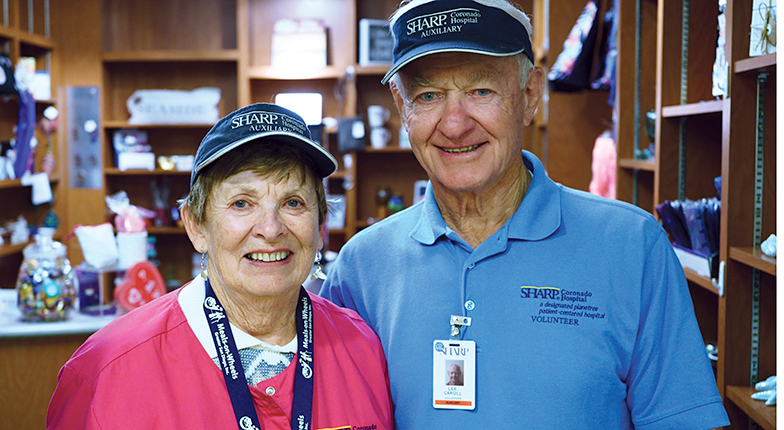
Volunteers Sue and Lee Cargill lead the operation, with a dedication to ensuring the people who need them never miss a meal. During various shutdowns due to COVID-19, the food delivery volunteers were the only ones allowed to continue their work.
“We set up a system and delivered safely throughout the pandemic,” said Sue, who’s a retired nurse and has been volunteering for 10 years. “I like the contact with people who are pretty much homebound. I just like that outlet to be with these people.”
“They get meals every day, including holidays, and if a scheduled volunteer is unable to make deliveries, another volunteer always steps in,” Lee said. “We have a great team.”
On the menu this Thanksgiving: turkey with dressing, cranberries, sparkling apple juice, and pumpkin pie.
Standing Up Farmers’ Markets
In Los Angeles, many neighborhoods don’t have ready access to healthy food. Cedars-Sinai Medical Center partners with local organizations to make long-term investments in technology, infrastructure, and distribution, which will build region-wide access to food. And during the worst of the COVID-19 pandemic, the hospital helped fund and staff local farmers’ markets in the neighborhoods most in need.
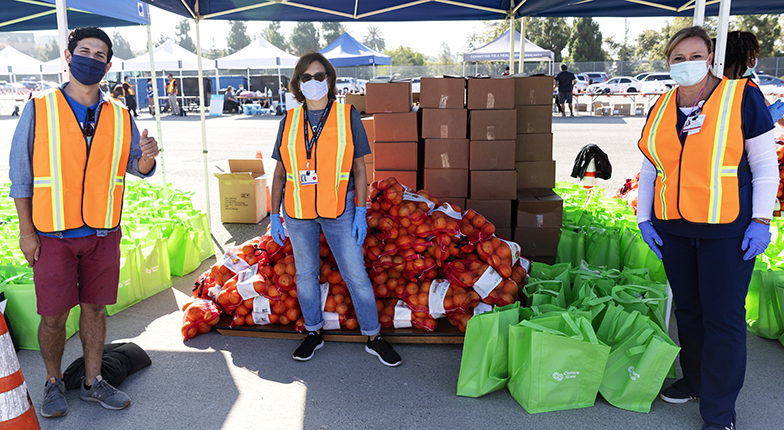
“We saw the crisis unfolding, and we knew we had an opportunity to make a difference, so we expanded our funding to help the greatest number of people in the shortest period of time,” said Jonathan Schreiber, Cedars-Sinai vice president, community engagement.
The hospital turned some of its annual grantmaking toward Sustainable Economic Enterprises of LA, a nonprofit organization that coordinates farmers’ markets in so-called “food deserts” — neighborhoods in south Los Angeles, Watts, west Los Angeles, and throughout the region that have nowhere for people to shop for nutritious meals.
Ultimately, the hospital served 15,000 people with grants of about $300,000 for 12 different distribution sites, paid hundreds of their own employees to work at those sites, and helped sustain local farmers.
“There’s a lot of good community building and a lot of good access that’s happening when you make this food available,” said Schreiber. “We’re part of the fabric of the community, and we want to be part of the solutions to the enormous problems of vulnerability.”
Resources
CalFresh is California’s food stamps (SNAP) program
California Association of Food Banks leads the collective effort to end hunger in California
